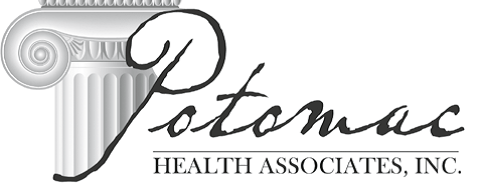There are numerous databases available to the public for information related to virtually all aspects of federal procurement. In this blog, we discuss The System for Award Management (SAM) and how it can be used for market research and intelligence. Subsequent blogs will discuss other key databases.
SAM is a federal government database that consolidates various procurement systems and provides a centralized and standardized approach to collecting, storing, and disseminating information related to government contracting. SAM is a crucial tool for businesses, federal agencies, and other entities involved in government procurement. It is one of, if not the most important, source of federal procurement information. Here are key features of SAM and its value for market research and business intelligence:
Centralized Database:
SAM serves as a single, centralized database that contains information on entities that have formally registered their company to conduct business with the federal government. It consolidates data from multiple procurement and acquisition systems and streamlines access to information.
Registration and Certification:
 Businesses register in SAM to be eligible for federal contracts, grants, and assistance programs, and must have an active registration to receive funds from any of these sources. SAM includes a representation and certification module (often referred to frequently in “government-speak” as “Reps and Certs”) where businesses provide various administrative details, such as their size, ownership, and socio-economic status. These characteristics are increasingly important for procurements that are set-asides for one or more of these three criteria. Some entities must also disclose compensation to the highest-paid employees, but this information is not available to the public unless certain other criteria are met.
Businesses register in SAM to be eligible for federal contracts, grants, and assistance programs, and must have an active registration to receive funds from any of these sources. SAM includes a representation and certification module (often referred to frequently in “government-speak” as “Reps and Certs”) where businesses provide various administrative details, such as their size, ownership, and socio-economic status. These characteristics are increasingly important for procurements that are set-asides for one or more of these three criteria. Some entities must also disclose compensation to the highest-paid employees, but this information is not available to the public unless certain other criteria are met.
Entity Validation and Verification:
SAM validates and verifies the information submitted by entities from other databases as allowed by law (e.g., Dun and Bradstreet (DB); the IRS, etc.), increasing the accuracy and reliability of data. This helps to maintain a credible and trustworthy database for government agencies and contractors.
Search and Query Capabilities:
SAM provides robust search and query capabilities, allowing users to find, for example, specific companies, contracts, or opportunities. SAM includes about 30 standard reports that are already configured to return results of certain common searches. Users can also enhance their results by specifying search parameters of their choice, such as location, industry, size, and socio-economic status. You do not have to be registered to use SAM for queries or to run a search, however, not all information or capabilities of the system are accessible to unregistered users.
Business Opportunities:
SAM provides a platform for government agencies to post solicitations, requests for proposals (RFPs), and other business opportunities. Notices are posted for each successive phase of every solicitation over $25,000. Businesses can use SAM to identify opportunities in a broad general category (e.g., software development, etc.), or identify specific opportunities of interest (software development for inventory management at Walter Reed National Medical Center, etc.). SAM also provides notification of Industry Days associated with a specific procurement, or with a specific agency. Both kinds of Industry Days are important sources of market research and business intelligence. Registered users can set up email alerts for changes in specific solicitations of interest.
Data Transparency and Standardization:
SAM promotes transparency by standardizing data across the federal procurement landscape.
Standardized information simplifies the process of conducting market research and comparing potential business partners or competitors.
Integration with Other Systems:
SAM integrates with other government systems, such as the Federal Procurement Data System (FPDS), ensuring a comprehensive view of federal procurement activities. This integration enhances the efficiency of business intelligence efforts.
Updates and Renewals:
Businesses must update their information annually in SAM to maintain an active registration. This ensures that the database contains current and accurate data, contributing to the value of market research and business intelligence efforts. Businesses that do not update their registration remain in the database, but are identified as inactive.
Compliance and Accountability:
 SAM includes features that help ensure compliance with federal regulations and policies related to government contracting. The system enhances accountability by providing a standardized platform for documenting and verifying compliance, or non-compliance. For example, one of the standard reports identifies organizations that have had one or more contracts terminated by Default, and/or For Cause. This information is important for the government and contractors. For example, the government will want to know if a prospective contractor has defaulted on any previous contracts if they are under consideration for a new contract. Contractors will also want to know if a prospective teaming partner or subcontractor has defaulted on contracts in the past, before they decide to subcontract with them for a new contract.
SAM includes features that help ensure compliance with federal regulations and policies related to government contracting. The system enhances accountability by providing a standardized platform for documenting and verifying compliance, or non-compliance. For example, one of the standard reports identifies organizations that have had one or more contracts terminated by Default, and/or For Cause. This information is important for the government and contractors. For example, the government will want to know if a prospective contractor has defaulted on any previous contracts if they are under consideration for a new contract. Contractors will also want to know if a prospective teaming partner or subcontractor has defaulted on contracts in the past, before they decide to subcontract with them for a new contract.
One final cautionary note: There is no cost for registration, validation, and renewal in SAM; all features are free. However, there are numerous third parties with no relationship to the federal government that will offer to perform these services for a fee. They have sophisticated marketing campaigns that make it appear very convincing, as though the information comes directly from an official government agency. But if you scroll down to the bottom of their home page and look closely, you’ll see a disclaimer in very, very, very “fine print”, stating that they have no relationship with the federal government. Part of their strategy is to contact contractors shortly before their active registration is due to expire and remind them they are required to update their registration in SAM…which is true. They also include information from their SAM registration to suggest their authenticity and imply that they are an agent of the government. Organizations new to federal contracting are particularly susceptible to this approach, not realizing that there is no cost to register, validate and/or renew a registration from the government.
In summary, SAM plays a vital role facilitating market research and business intelligence in the federal government contracting space. Its centralized nature, comprehensive and reliable data, search capabilities, and integration with other systems make it an invaluable resource for businesses engaged with or looking to engage in government procurement activities.
